News & Events
Home - Science - Research Centers - NOMIS Center for Immunobiology and Microbial Pathogenesis - News & Events
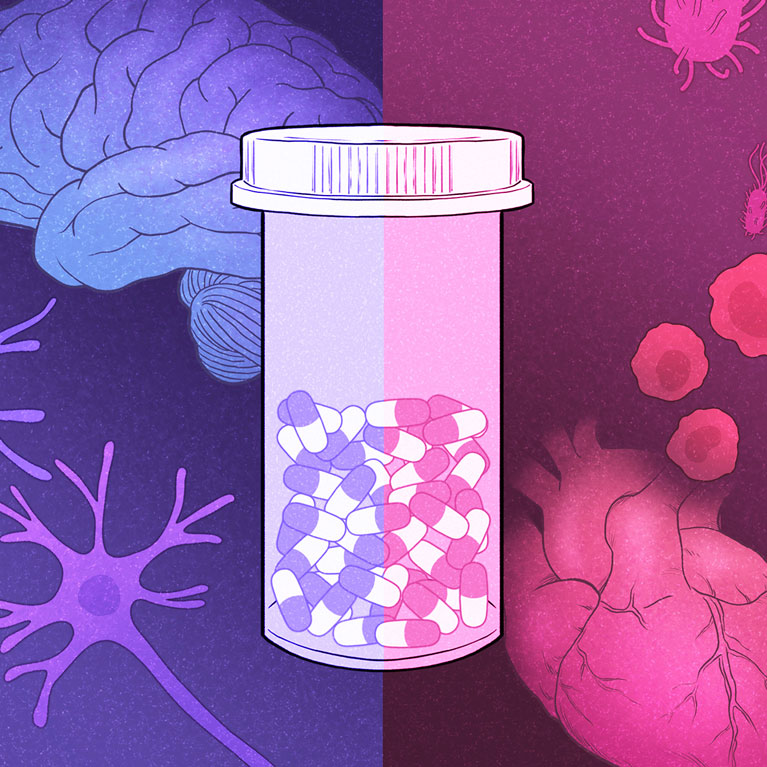
LA JOLLA—Antidepressants like Prozac are commonly prescribed to treat mental health disorders, but new research suggests they could also protect against serious infections and life-threatening sepsis. Scientists at the Salk …
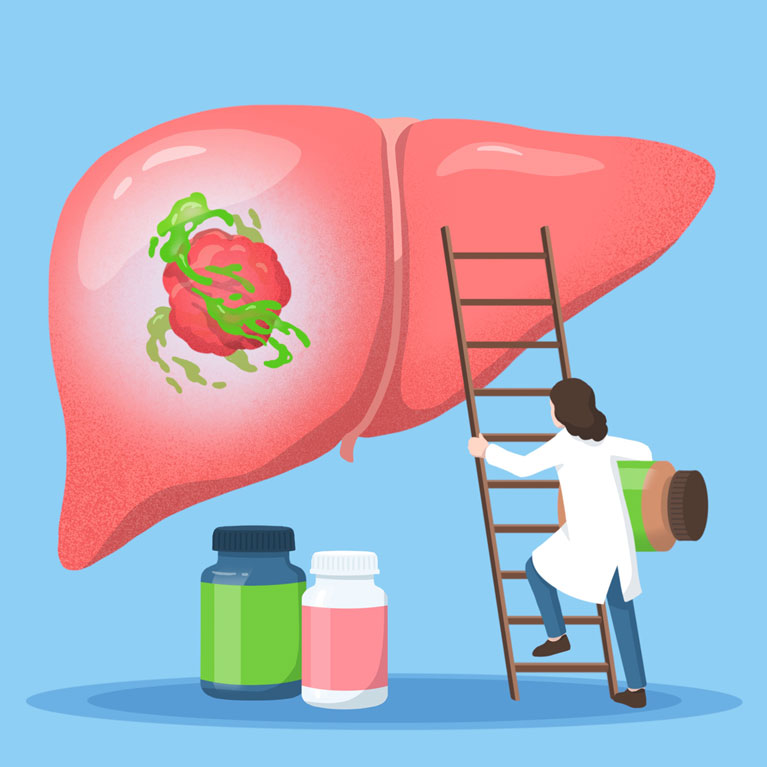
LA JOLLA—Immunotherapy is a modern approach to cancer treatment that uses a patient’s own immune system to help fight tumors. It has made an incredible impact on treating cancers in …
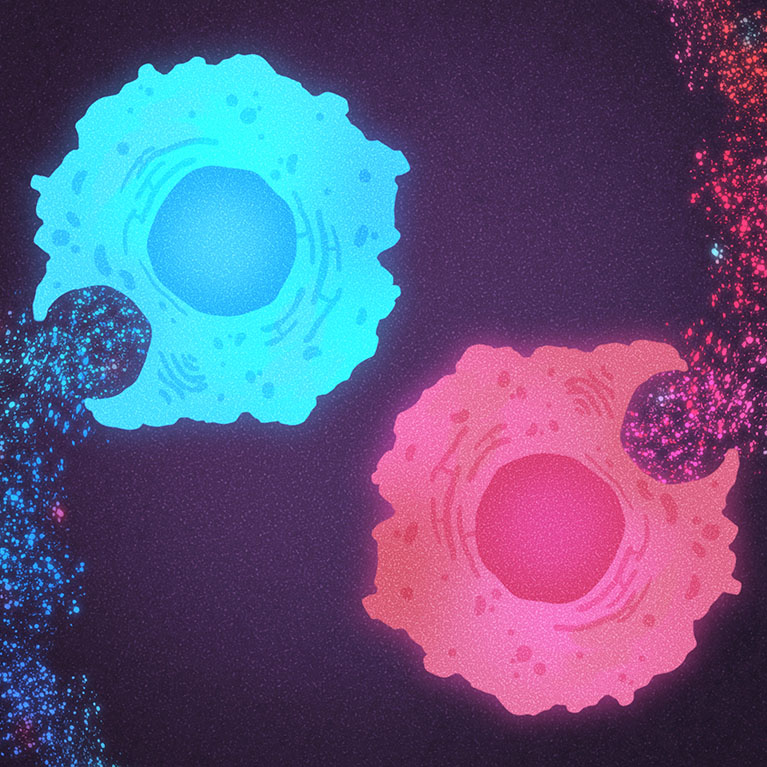
LA JOLLA—The decision between scrambled eggs or an apple for breakfast probably won’t make or break your day. However, for your cells, a decision between similar microscopic nutrients could determine …
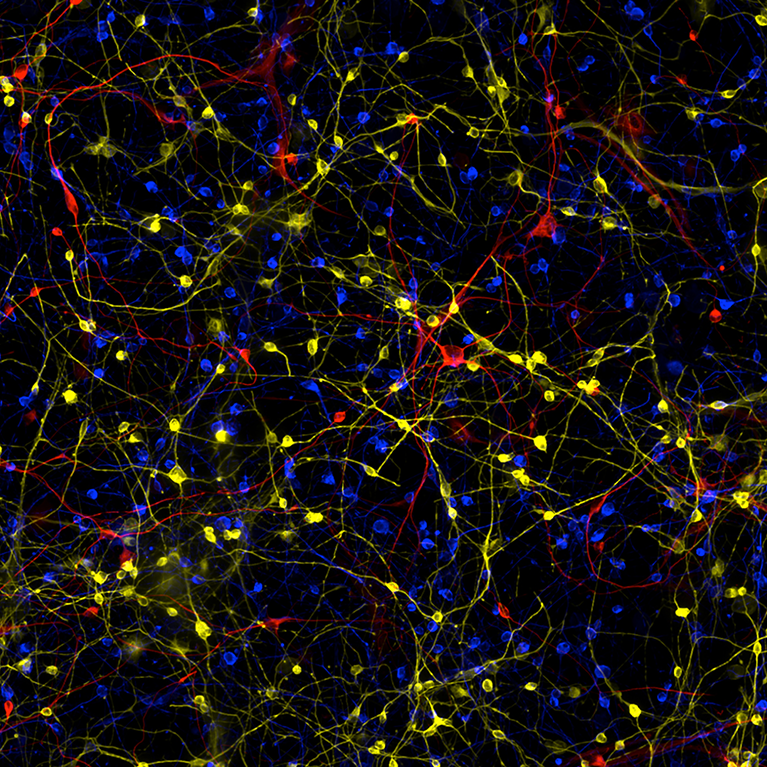
LA JOLLA—The Salk Institute was awarded $3.6 million by the California Institute for Regenerative Medicine (CIRM), one of the world’s largest institutions dedicated to regenerative medicine. Salk Professor Rusty Gage …
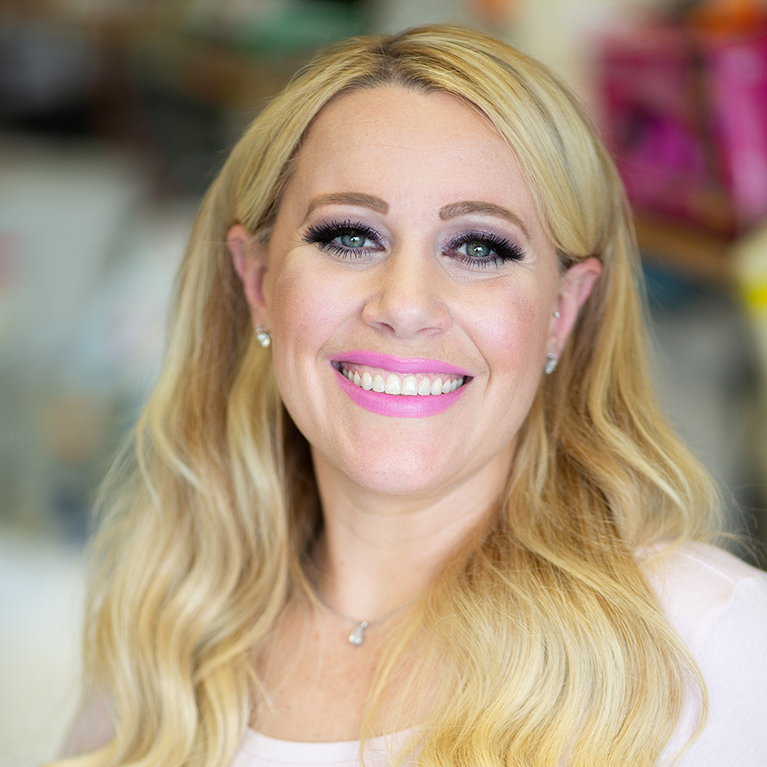
LA JOLLA—Salk Professor Janelle Ayres has been selected as a 2024 Howard Hughes Medical Institute (HHMI) Investigator. The HHMI Investigators program awards established scientists with approximately $9 million in funding …
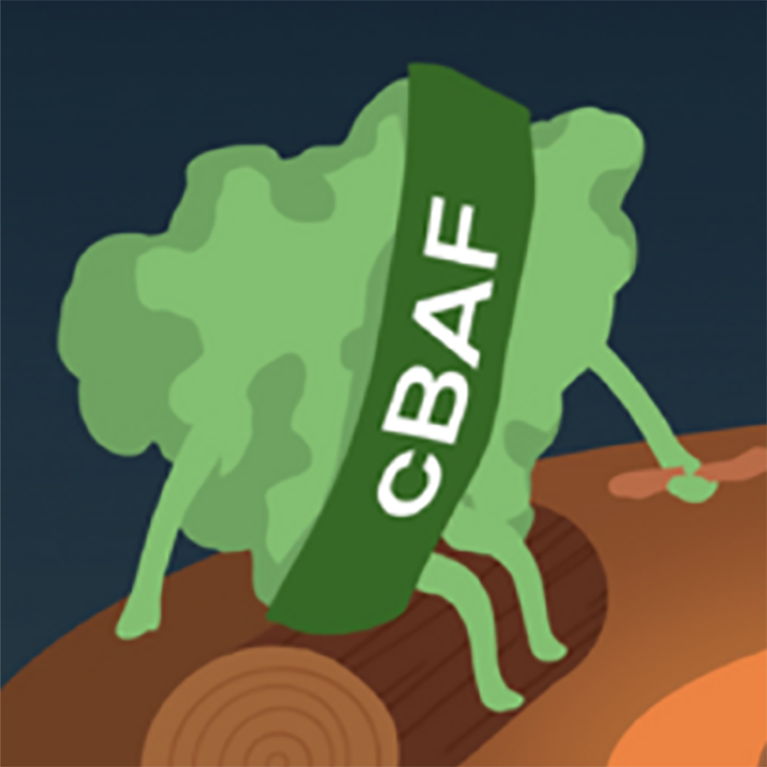
LA JOLLA—Bacteria, parasites, viruses—the immune system tackles them all. At the front line of the human immune response are cells called macrophages, which are responsible for correctly identifying intruders and …
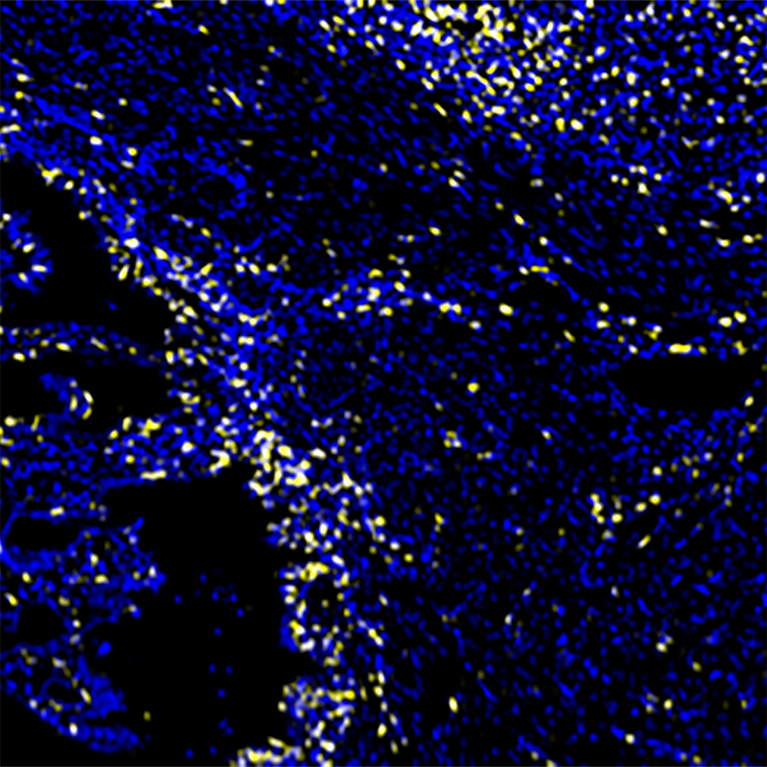
LA JOLLA—Immunotherapy has revolutionized the way we treat cancer in recent years. Instead of targeting the tumor itself, immunotherapies work by directing patients’ immune systems to attack their tumors more …
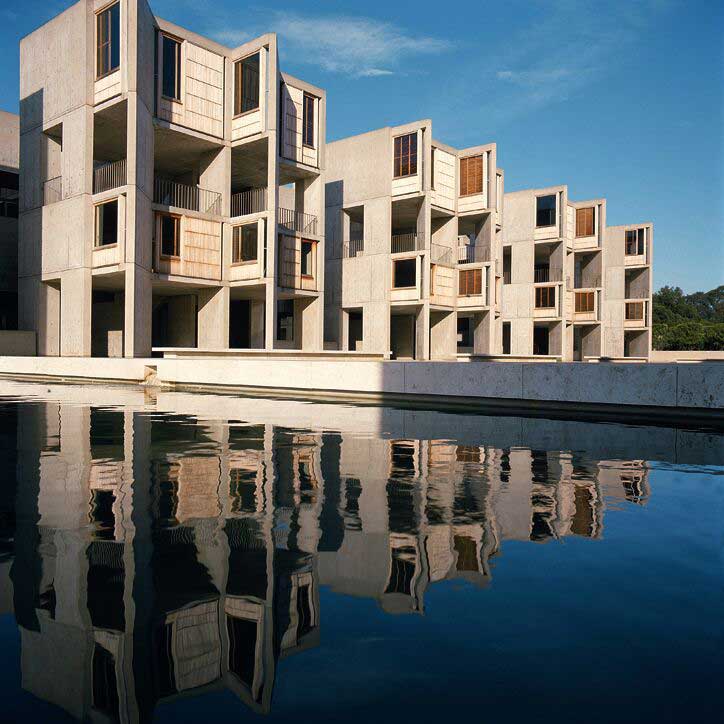
LA JOLLA—Salk Institute Professor Janelle Ayres has been elected to the American Academy of Microbiology’s Fellowship Class of 2024. Fellows of the Academy, an honorific leadership group within the American …
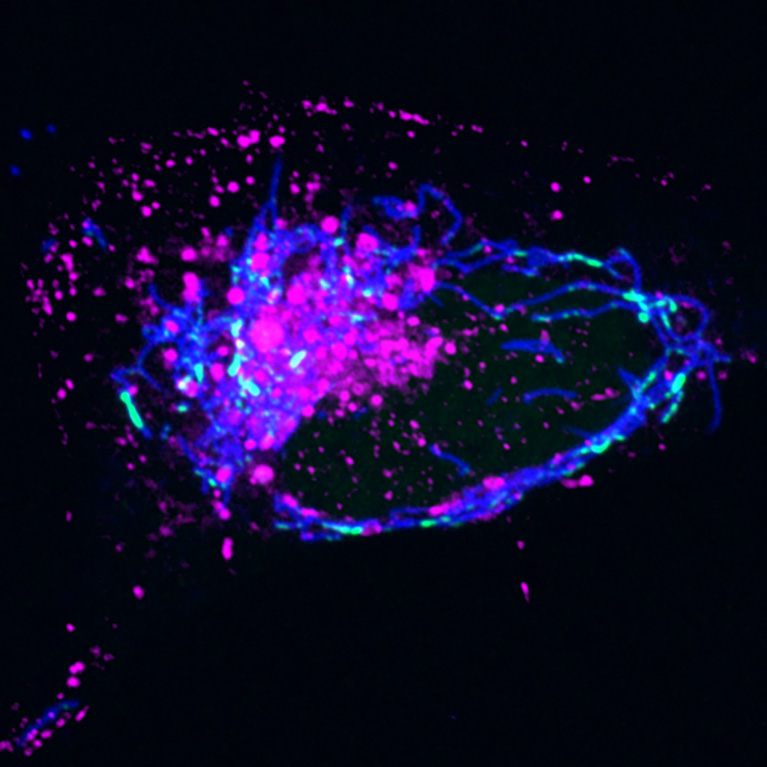
LA JOLLA—Cells in the human body contain power-generating mitochondria, each with their own mtDNA—a unique set of genetic instructions entirely separate from the cell’s nuclear DNA that mitochondria use to …
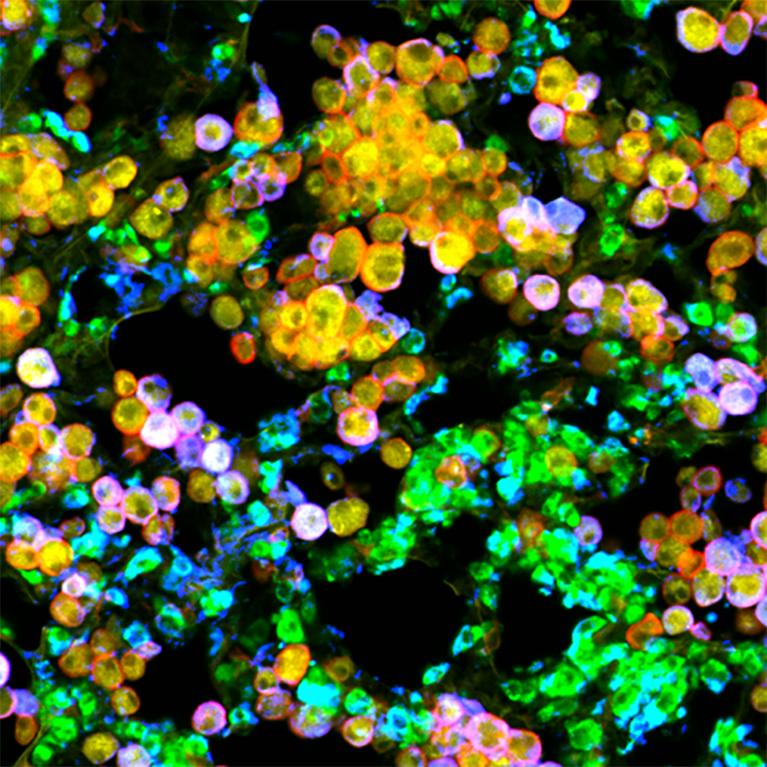
LA JOLLA—Lung adenocarcinoma is the most common lung cancer and the cause of most cancer-related deaths in the United States. There are several ways lung adenocarcinoma can arise, one of …
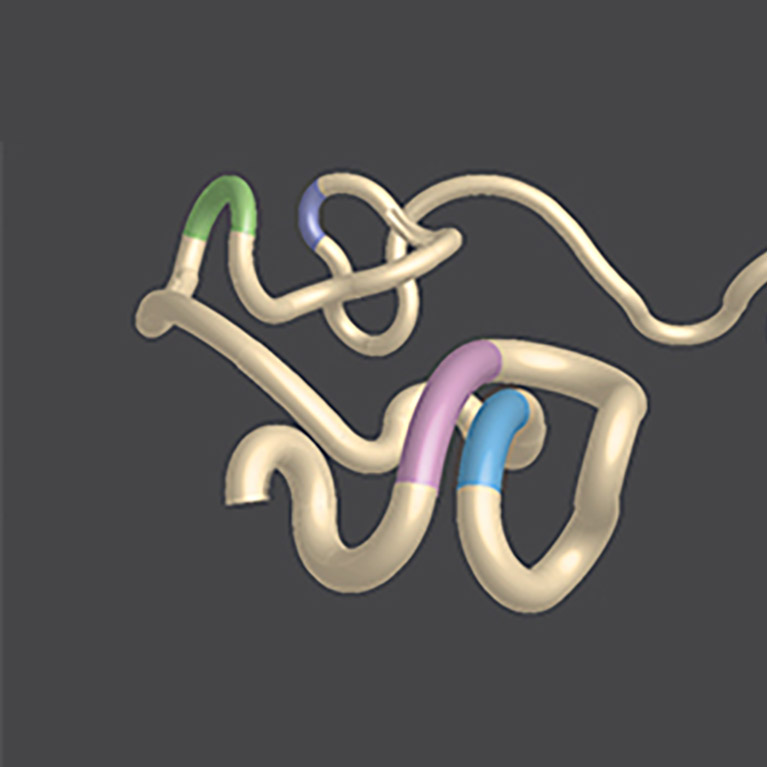
LA JOLLA—Regulatory T cells are specialized immune cells that suppress the immune response and prevent the body from attacking its own cells. Understanding how these cells work is key to …
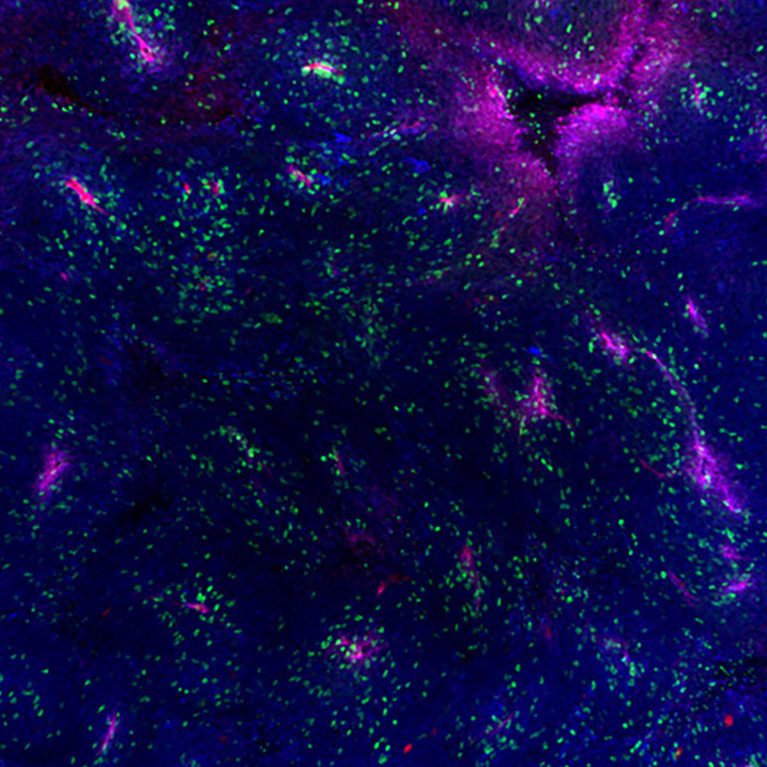
LA JOLLA—Immunotherapy, which uses the body’s own immune system to fight cancer, is an effective treatment option, yet many patients do not respond to it. Thus, cancer researchers are seeking …
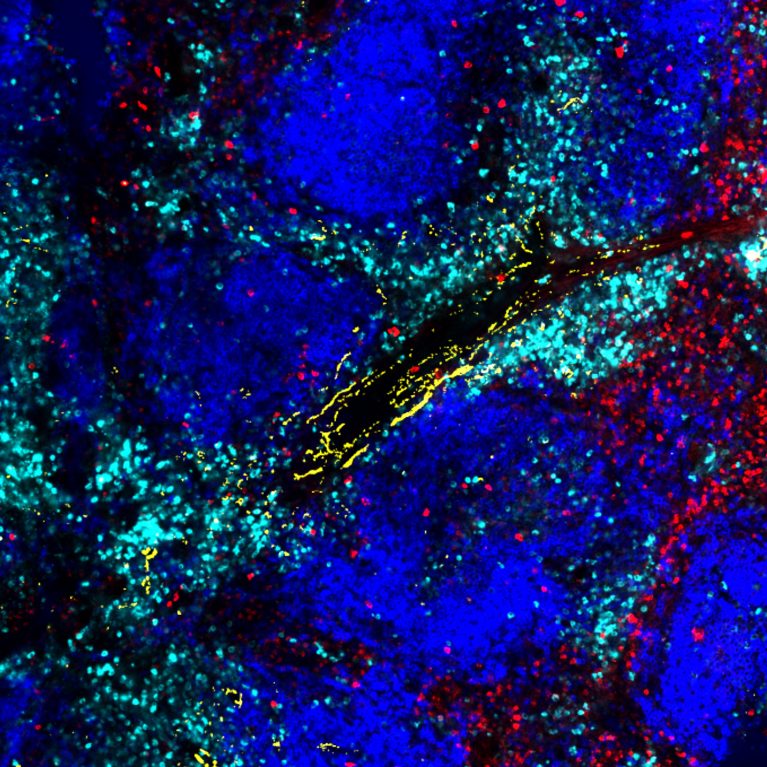
LA JOLLA—Even for killer T cells—specialized immune cells—seeking and destroying cancer cells around the clock can be exhausting. If scientists can understand why killer T cells become exhausted, then they …
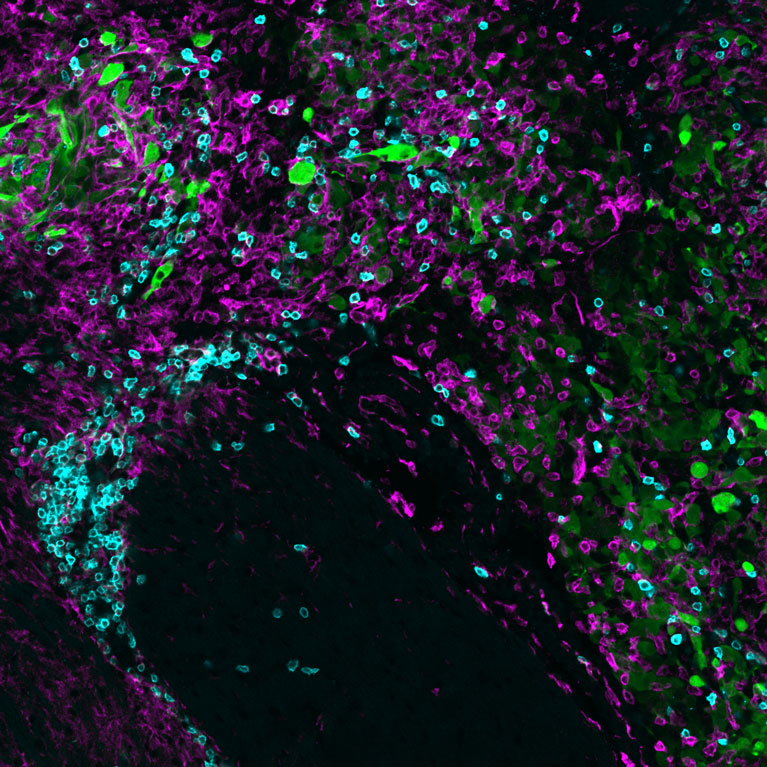
LA JOLLA—Glioblastoma, the most common and deadly form of brain cancer, grows rapidly to invade and destroy healthy brain tissue. The tumor sends out cancerous tendrils into the brain that …
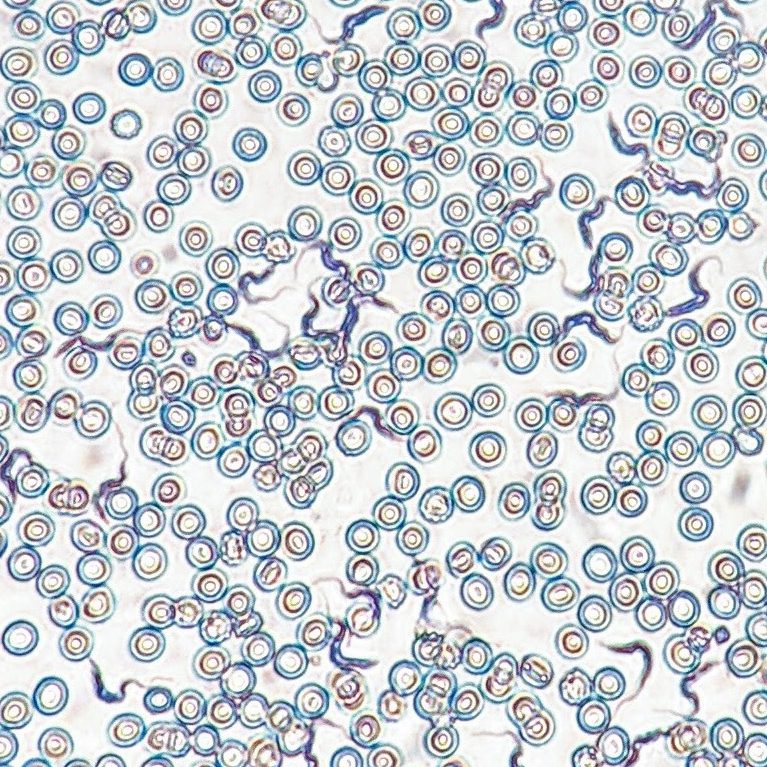
LA JOLLA—Although infections can present with many different symptoms, one common symptom is the loss of fat and muscle, a process called wasting. Salk scientists wanted to know whether wasting …
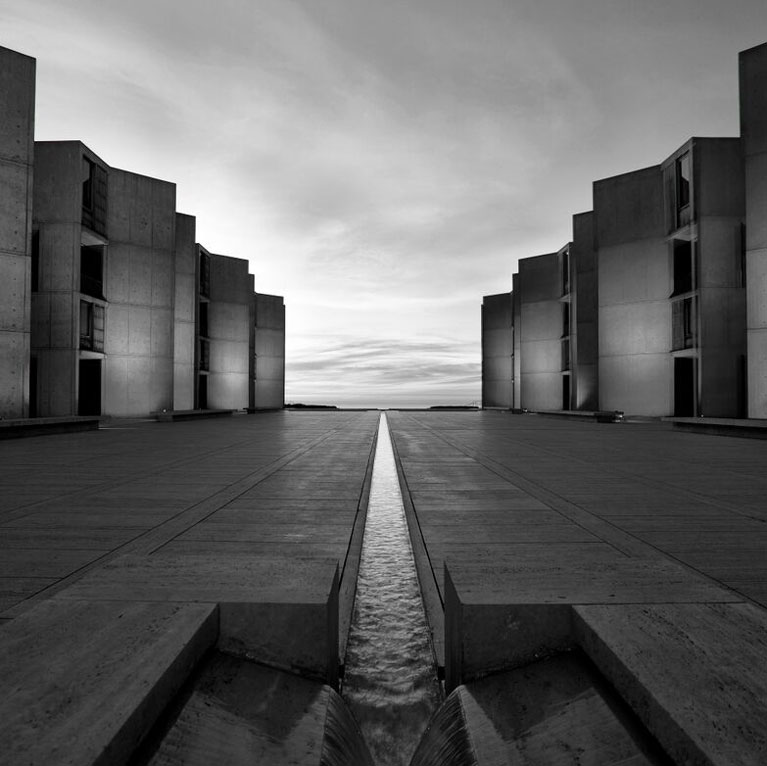
LA JOLLA—Salk Institute researchers, in collaboration with the National Institutes of Health, have discovered the molecular mechanisms by which the human immunodeficiency virus (HIV) becomes resistant to Dolutegravir, one of …
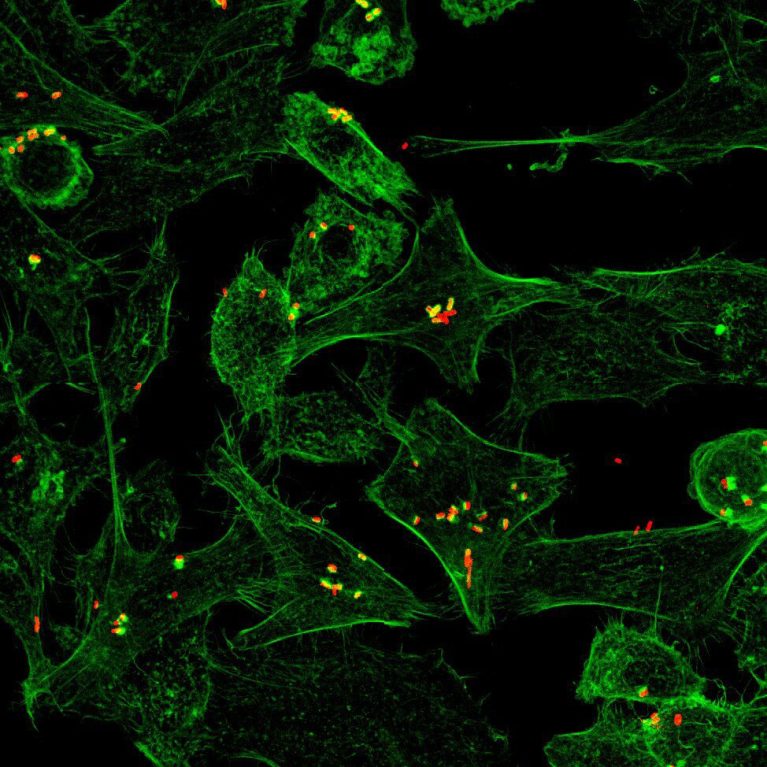
LA JOLLA—Worldwide, more than a million deaths occur each year due to diarrheal diseases that lead to dehydration and malnutrition. Yet, no vaccine exists to fight or prevent these diseases, …
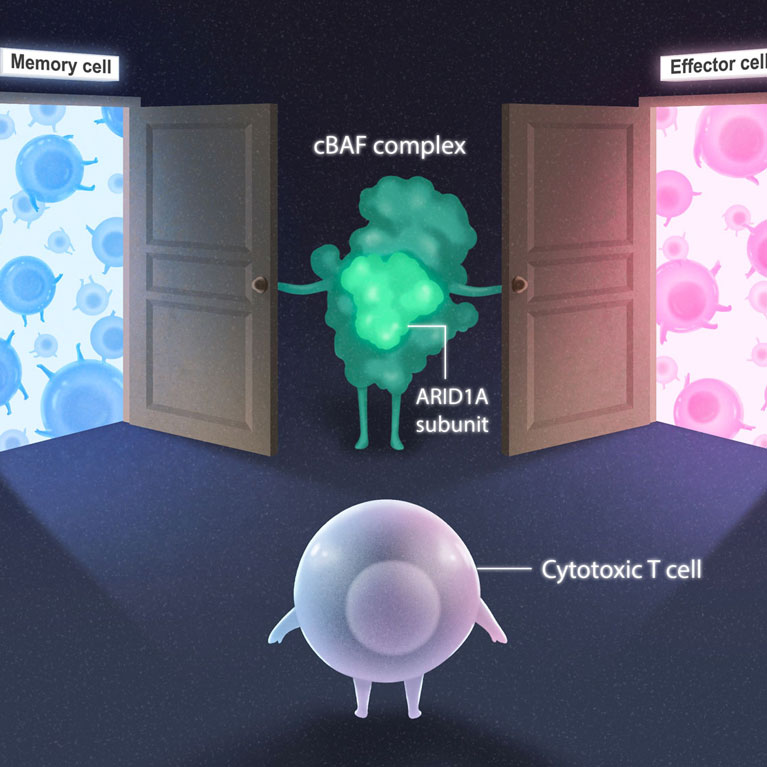
LA JOLLA—The immune system protects the body from invaders, such as bacteria, viruses, or tumors, with its intricate network of proteins, cells, and organs. Specialized immune cells, called cytotoxic T …
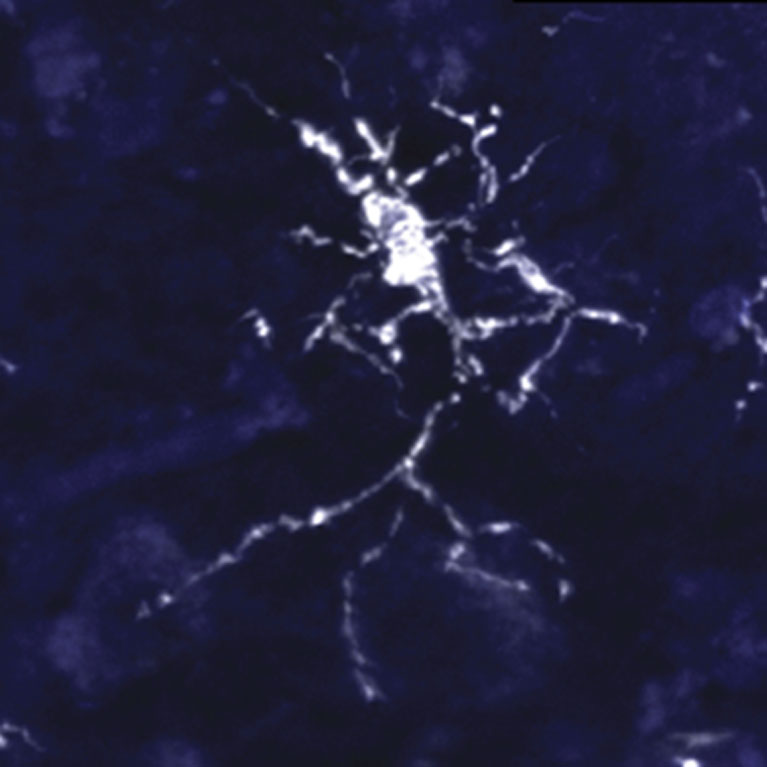
LA JOLLA—Situated at the intersection of the human immune system and the brain are microglia, specialized brain immune cells that play a crucial role in development and disease. Although the …
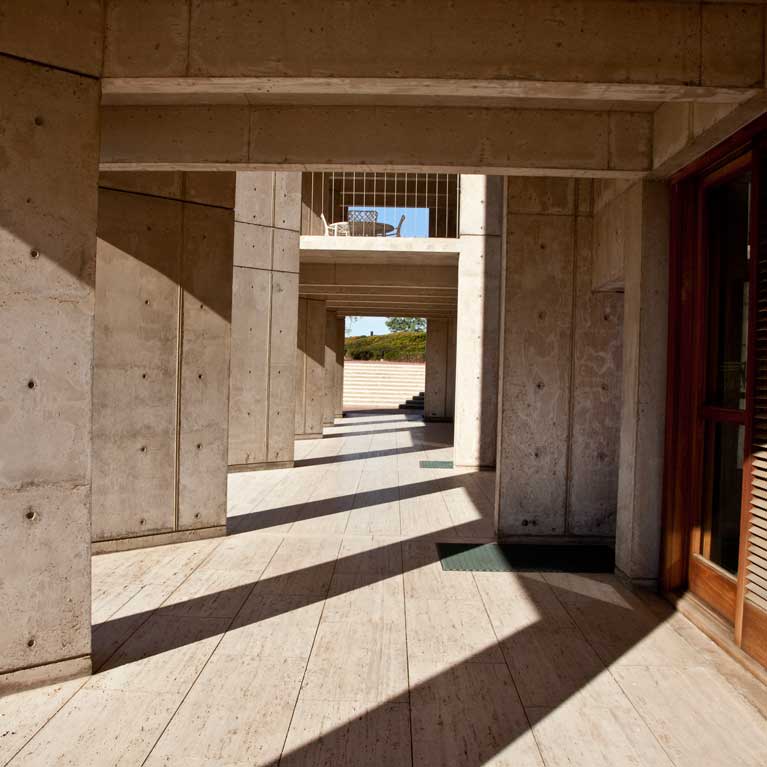
LA JOLLA—The Salk Institute and Autobahn Labs, an early-stage drug discovery incubator, will work together to identify and advance promising initial scientific discoveries through the preliminary steps of drug discovery …
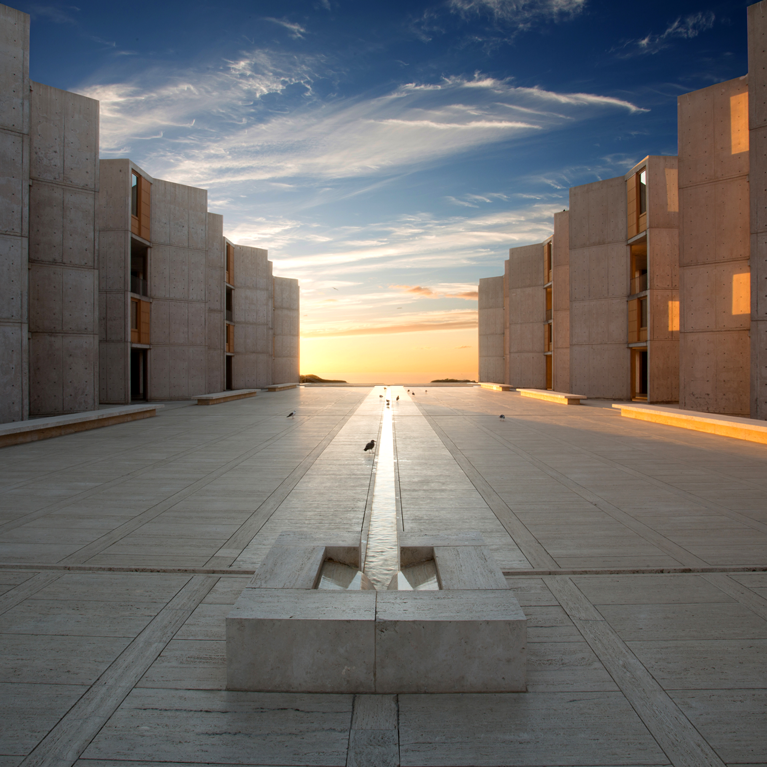
LA JOLLA—Five Salk Institute faculty members have been promoted for their notable, innovative contributions to science. These faculty members have demonstrated leadership in their disciplines, pushing the boundaries of basic …
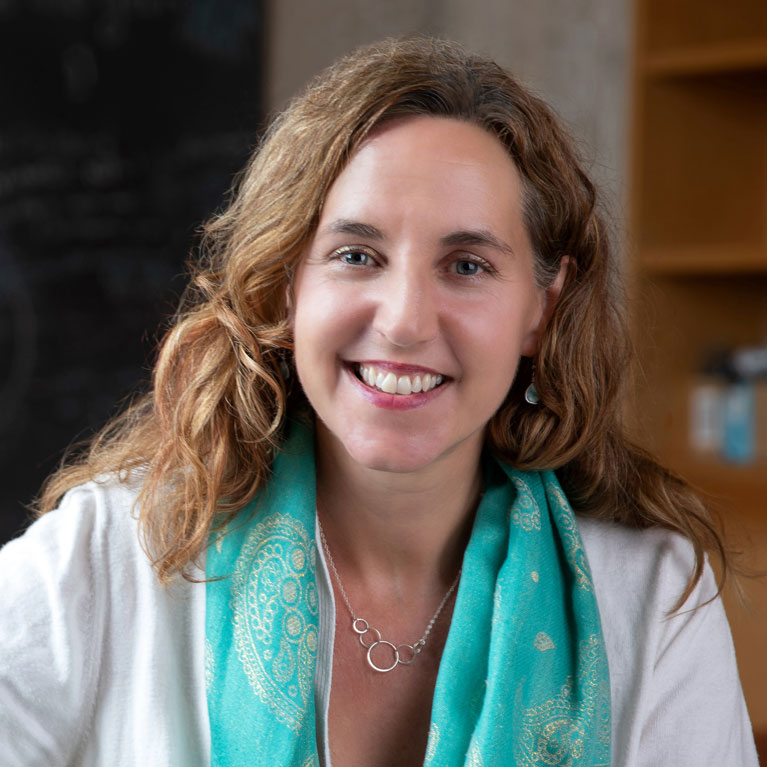
LA JOLLA—Salk Institute Professor Susan Kaech, director of the NOMIS Center for Immunobiology and Microbial Pathogenesis, has been elected to the American Academy of Arts and Sciences. She shares the …
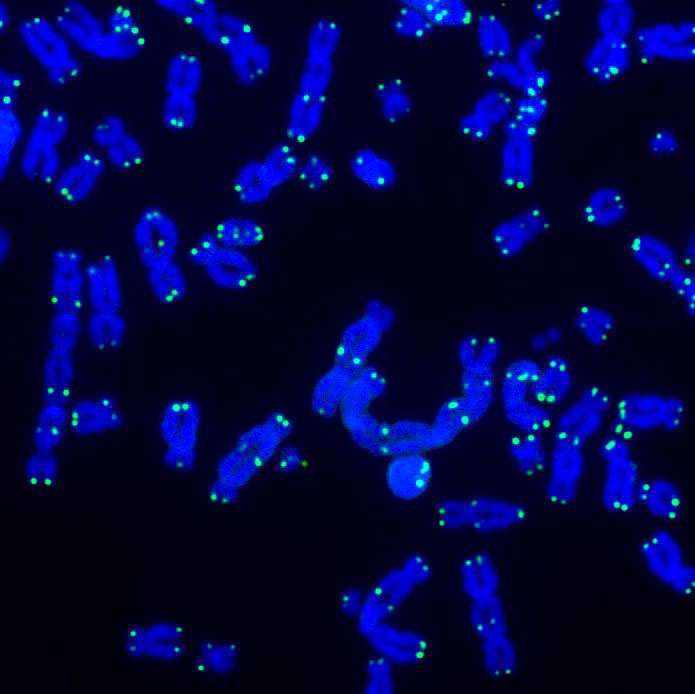
LA JOLLA—As we age, …
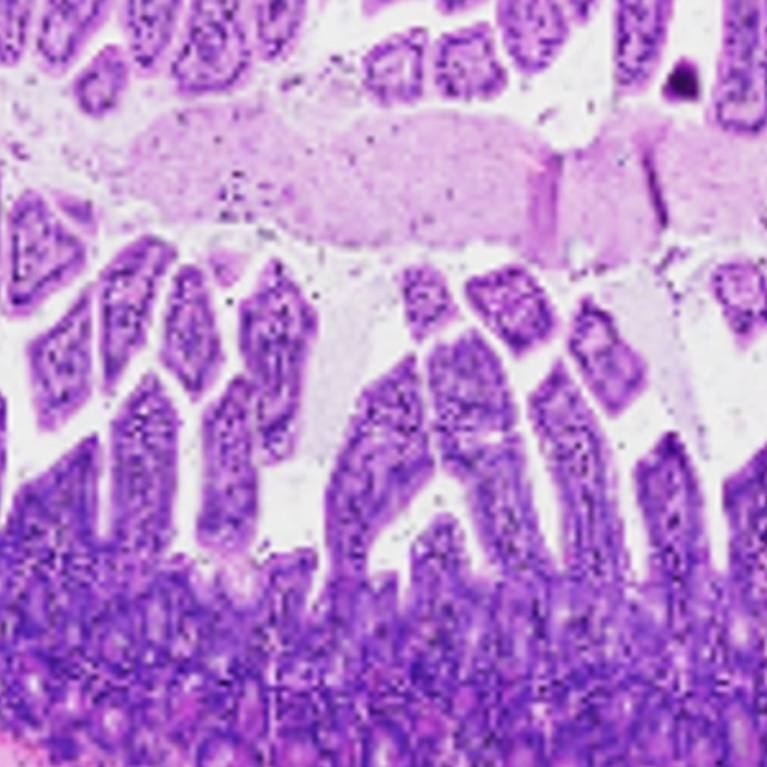
LA JOLLA—A drug developed by Salk Institute researchers acts like a master reset switch in the intestines. The compound, called FexD, has previously been found to lower cholesterol, burn fat, …
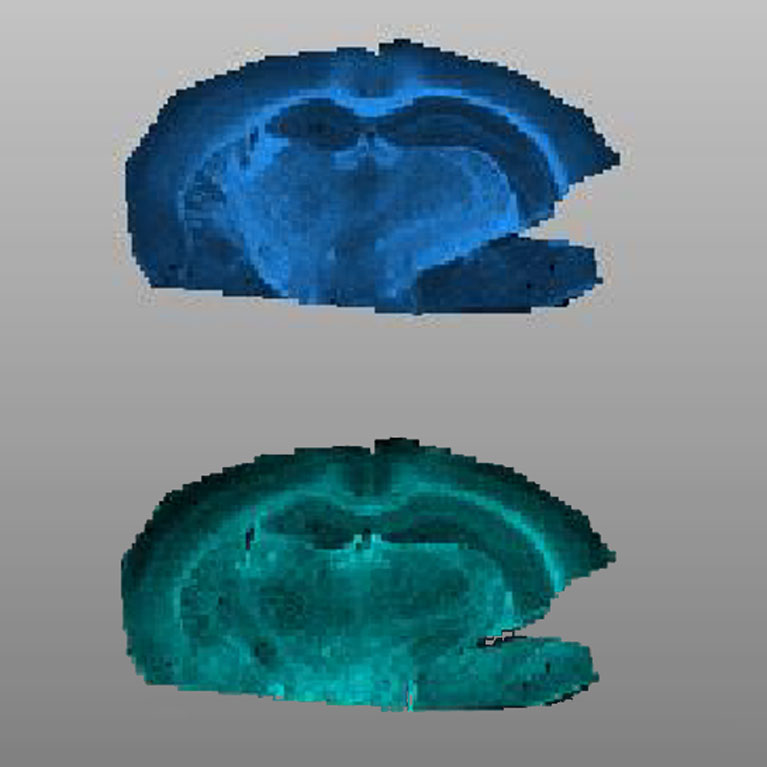
LA JOLLA—Aging involves complicated plot twists and a large cast of characters: inflammation, stress, metabolism changes, and many others. Now, a team of Salk Institute and UC San Diego scientists …

LA JOLLA—The Salk Institute welcomes Assistant Professor Deepshika Ramanan, an innovative researcher studying how the maternal immune system changes during pregnancy and breastfeeding and affects immunity and inflammation in babies …
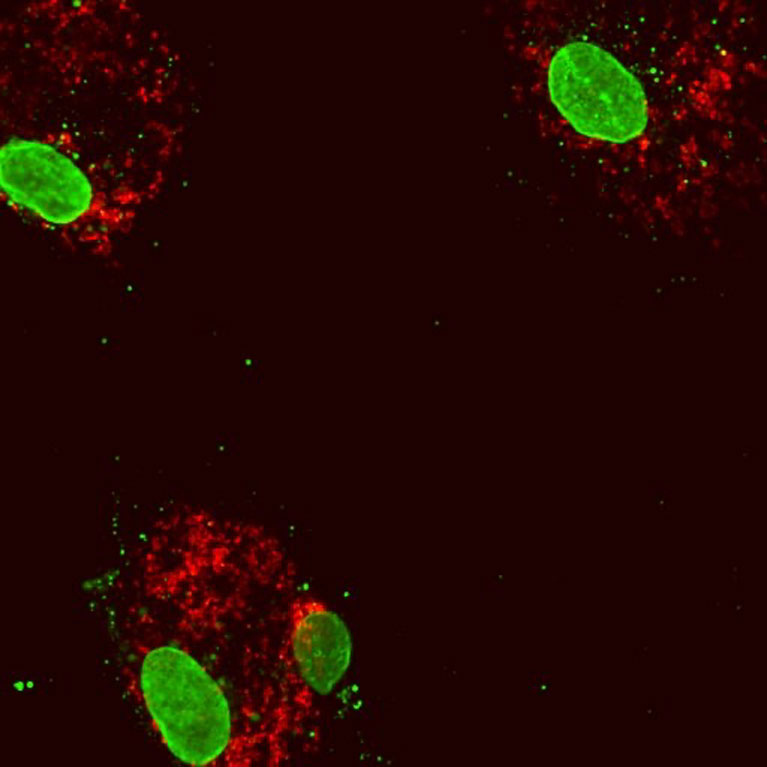
LA JOLLA— Mitochondria are known as cells’ powerhouses, but mounting evidence suggests they also play a role in inflammation. Scientists from the Salk Institute and UC San Diego published new …
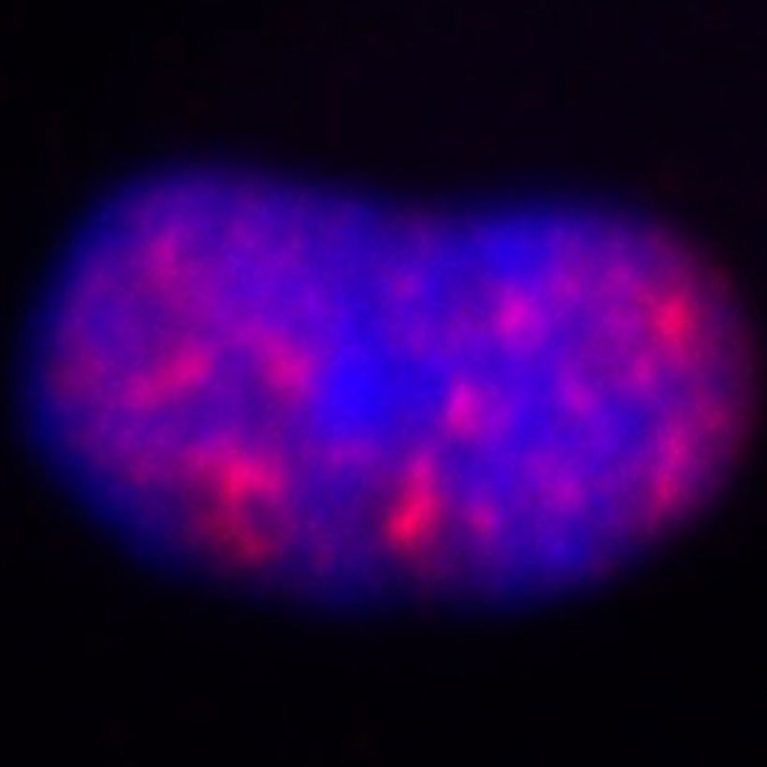
LA JOLLA—Researchers at the Salk Institute and King Abdullah University of Science and Technology (KAUST) in Saudi Arabia have discovered a new underlying cause of Wiskott-Aldrich syndrome, a rare genetic …
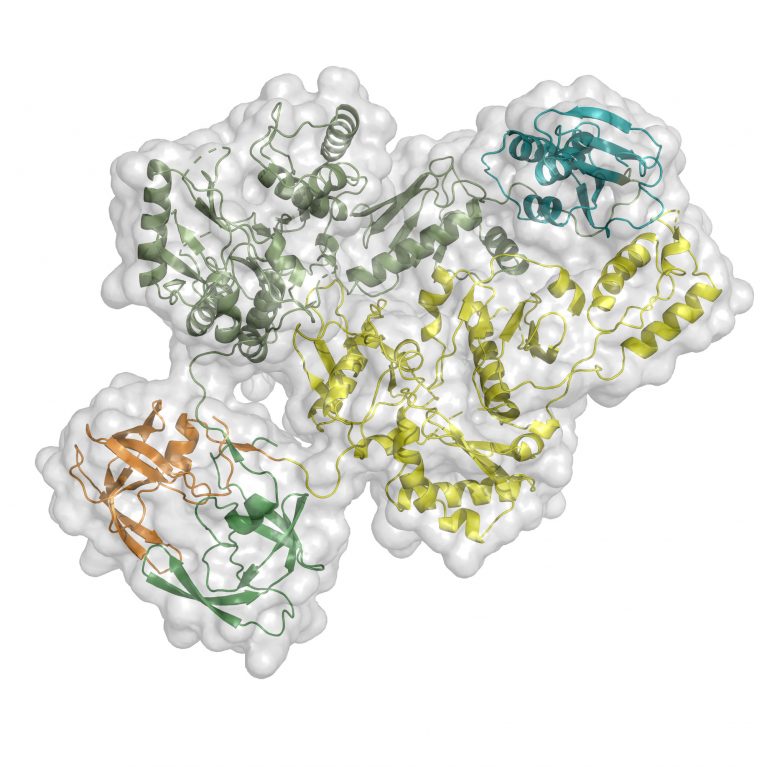
LA JOLLA—Understanding how HIV replicates within cells is key for developing new therapies that could help nearly 40 million people living with HIV globally. Now, a team of scientists from …
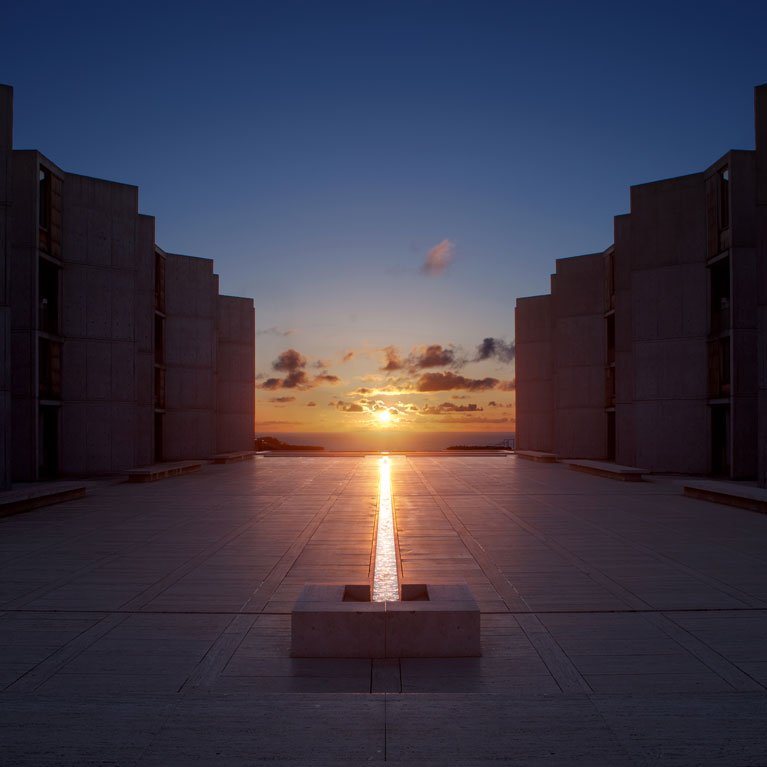
LA JOLLA—Salk scientists have uncovered an unexpected molecular target of a common treatment for alopecia, a condition in which a person’s immune system attacks their own hair follicles, causing hair …

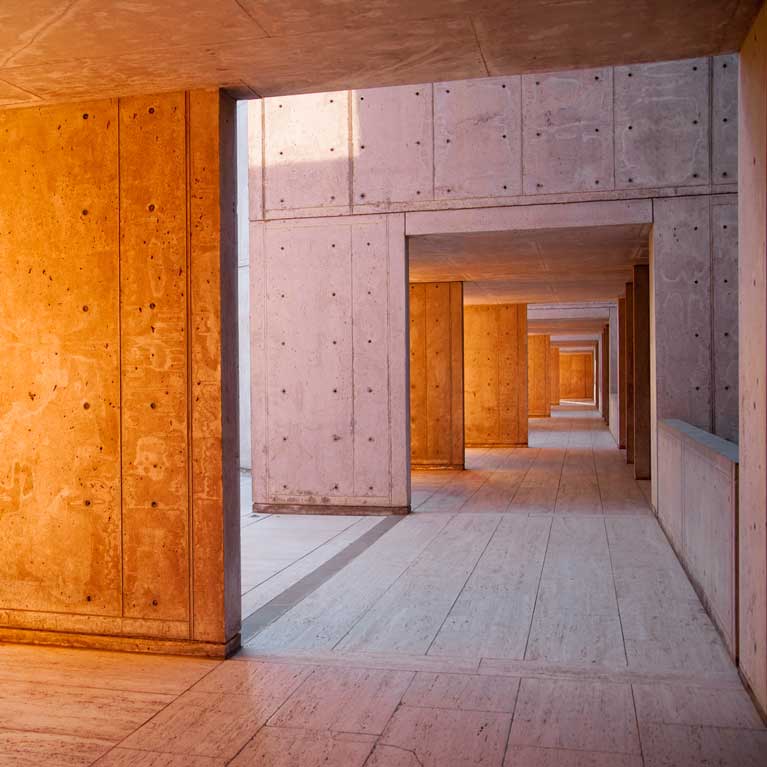
LA JOLLA—When mice with atopic dermatitis—a common type of allergic skin inflammation—are treated with drugs that target the immune system, their thickened, itchy skin generally heals quickly. But scientists have …
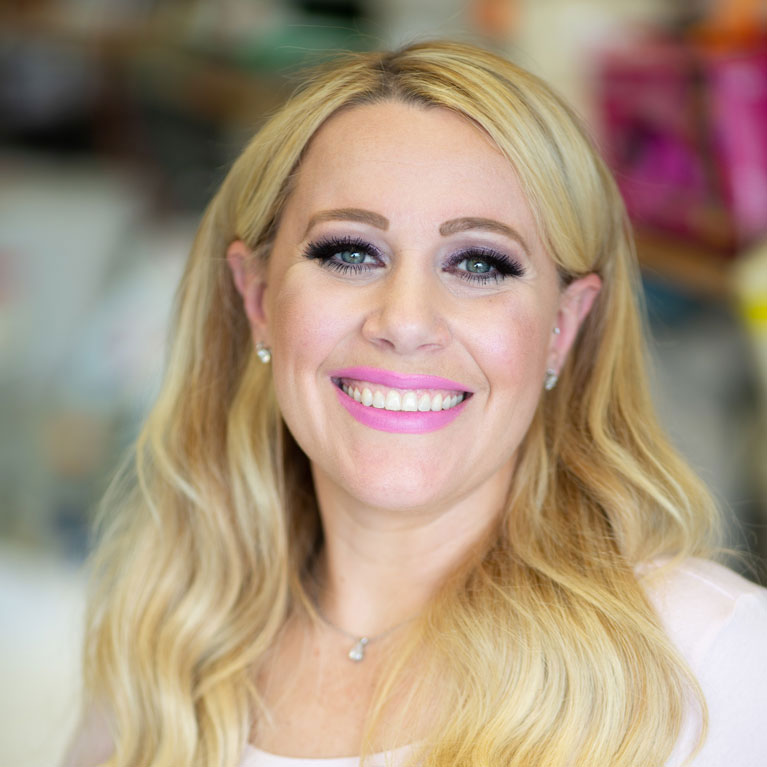
LA JOLLA—Professor Janelle Ayres has been recognized for her contributions and dedication to advancing science through research by being named the inaugural recipient of the Salk Institute Legacy Chair, effective …
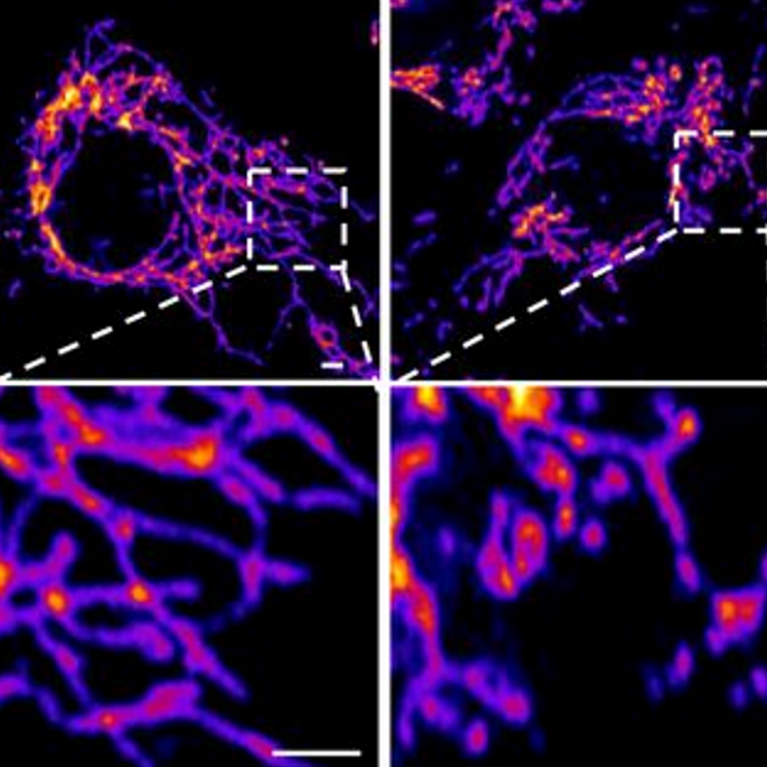
LA JOLLA—Scientists have known for a while that SARS-CoV-2’s distinctive “spike” proteins help the virus infect its host by latching on to healthy cells. Now, a major new study shows …
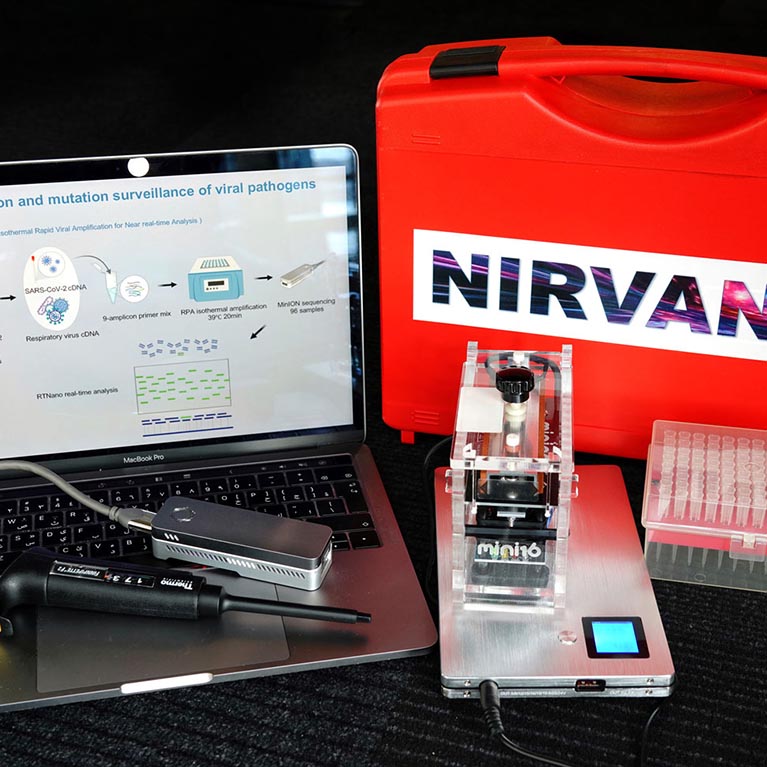
LA JOLLA—Clinicians using a new viral screening test can not only diagnose COVID-19 in a matter of minutes with a portable, pocket-sized machine, but can also simultaneously test for other …

LA JOLLA—As we endure a global viral pandemic, our appreciation for health and immunity has never been greater. Now, thanks to a generous gift from the NOMIS Foundation, Salk’s NOMIS …
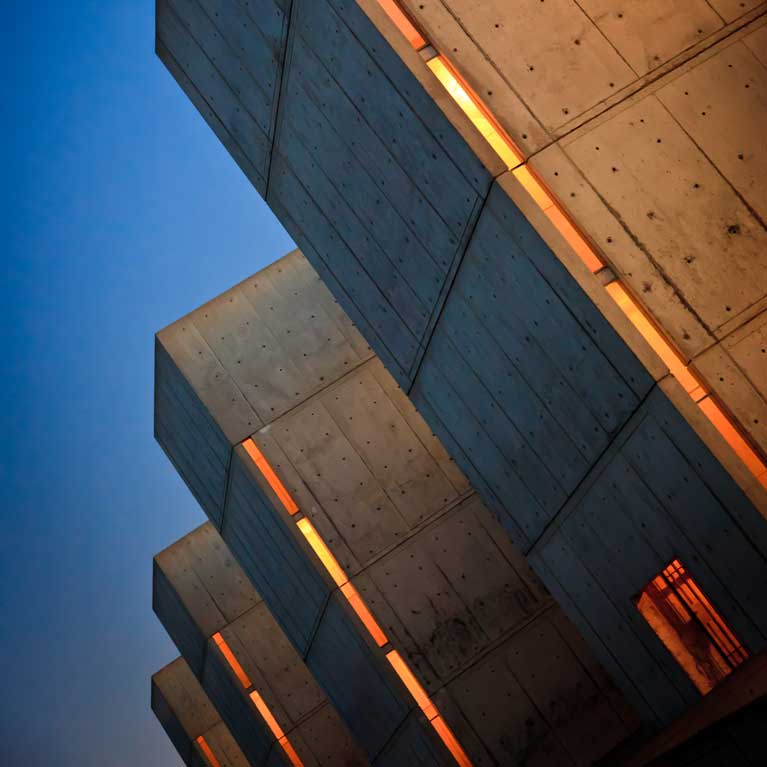
LA JOLLA—Assistant Professor Dmitry Lyumkis has received a Faculty Early Career Development Program (CAREER) award from the National Science Foundation (NSF). The CAREER award supports early career scientists who serve …
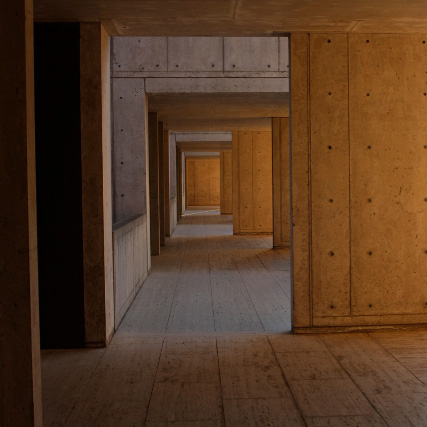
LA JOLLA—The diabetes drug metformin—derived from a lilac plant that’s been used medicinally for more than a thousand years—has been prescribed to hundreds of millions of people worldwide as the …
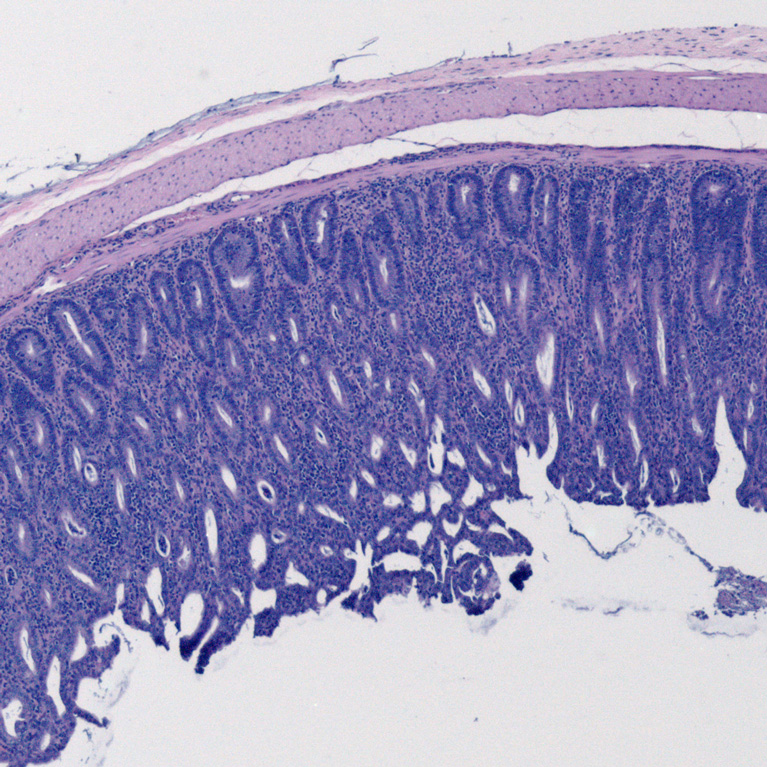
LA JOLLA—The human immune system is a finely-tuned machine, balancing when to release a cellular army to deal with pathogens, with when to rein in that army, stopping an onslaught …

LA JOLLA—Chronic liver disease represents a major global public health problem affecting an estimated 844 million people, according to the World Health Organization. It is among the top causes of …

LA JOLLA—As the COVID-19 pandemic continues across the globe, the Salk Institute joins in efforts to understand the fundamental science behind the novel coronavirus to pave the way to treatments …
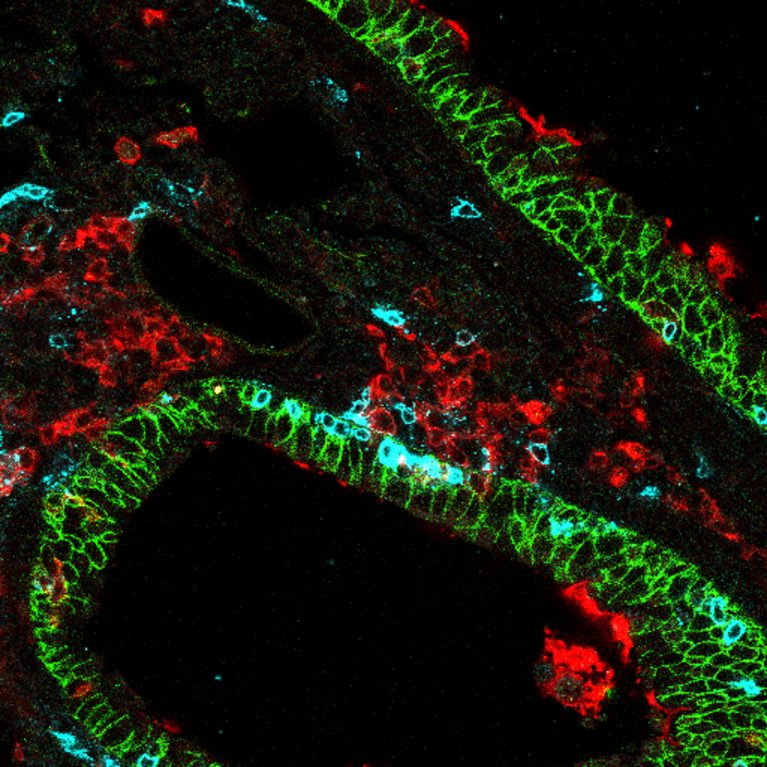
LA JOLLA—A significant site of damage during COVID-19 infection is the lungs. Understanding how the lungs’ immune cells are responding to viral infections could help scientists develop a vaccine.
Now, a …
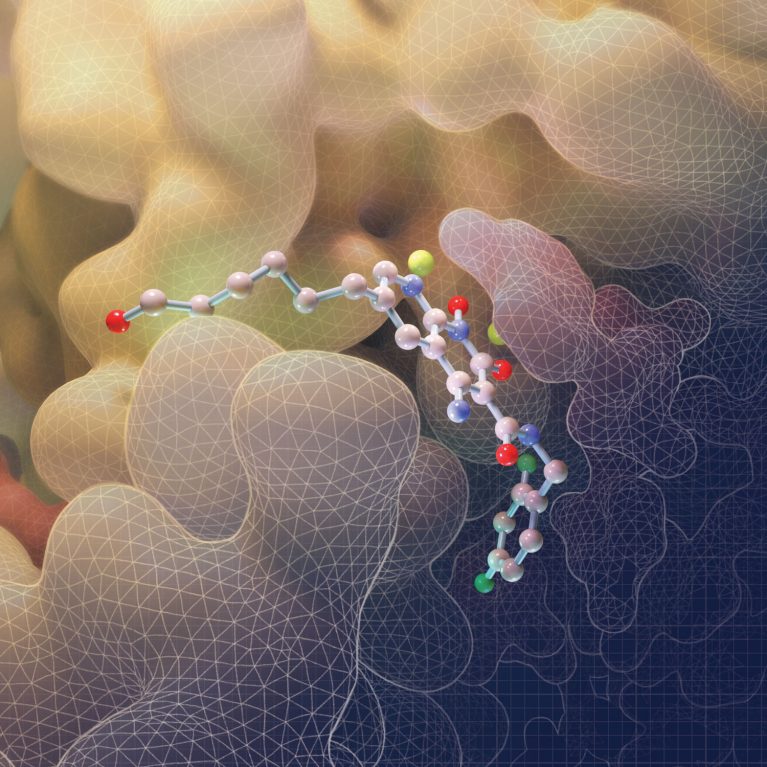
LA JOLLA—Salk scientists have discovered how a powerful class of HIV drugs binds to a key piece of HIV machinery. By solving, for the first time, three-dimensional structures of this …

LA JOLLA—Your immune system comes ready for battle against bacteria, viruses, fungi and even cancer. But in cases of autoimmune disease, the immune system’s superpowers turn it into a supervillain. …

LA JOLLA—Three Salk Institute faculty members have been promoted after the latest round of faculty reviews determined they are scientific leaders who have made original, innovative and notable contributions to …
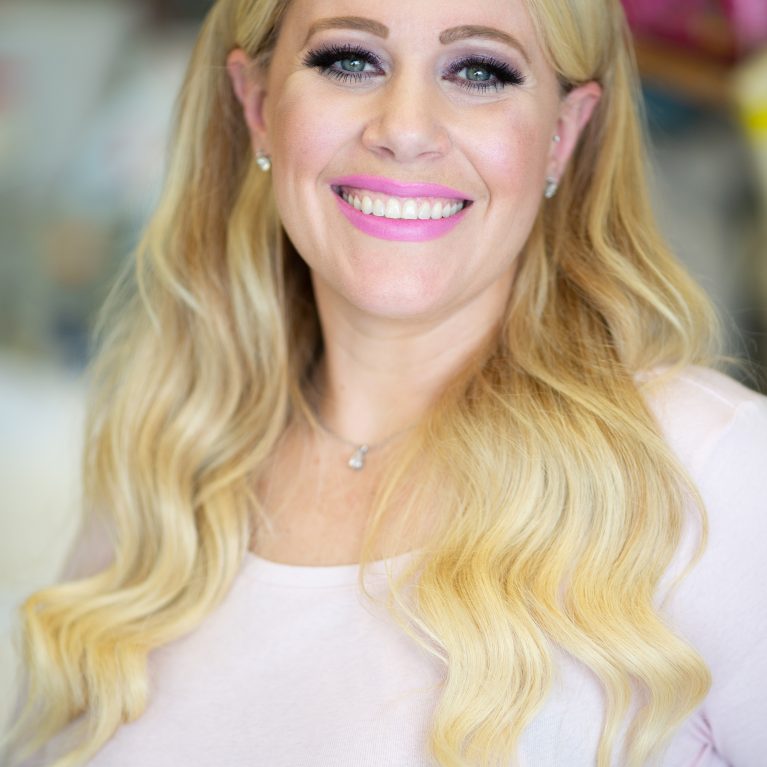
LA JOLLA—Associate Professor Janelle Ayres has been awarded $1.8 million over two years by the NOMIS Foundation to study health as an active process in which microbes—including the trillions of …
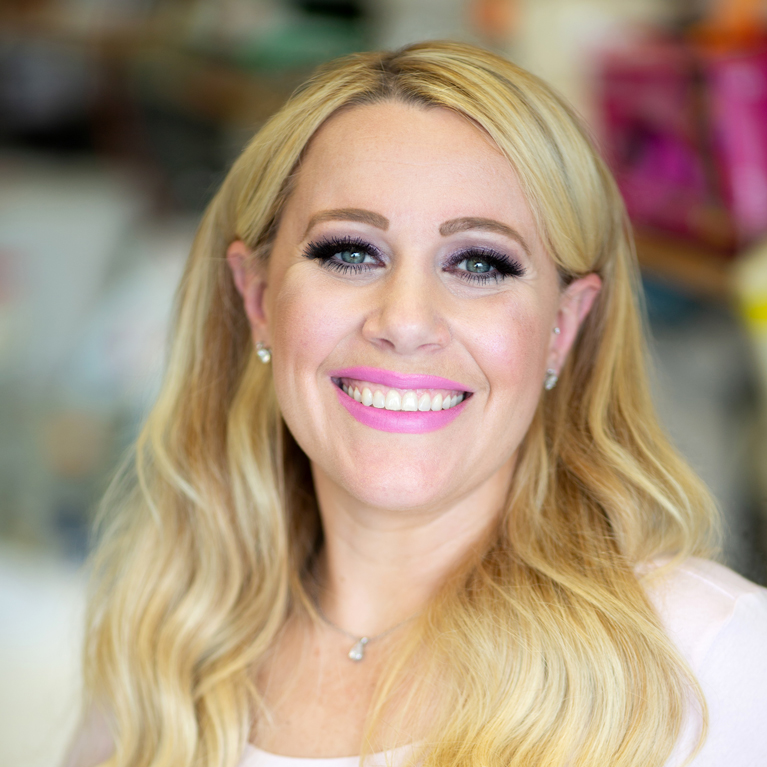
LA JOLLA—Associate Professor Janelle Ayres has been awarded a 2018 NIH Director’s Pioneer Award by the National Institutes of Health for her innovative research into host-pathogen interactions that promote the …

LA JOLLA—Over the past several years, CRISPR-Cas9 has moved beyond the lab bench and into the public zeitgeist. This gene-editing tool holds promise for correcting defects inside individual cells and …
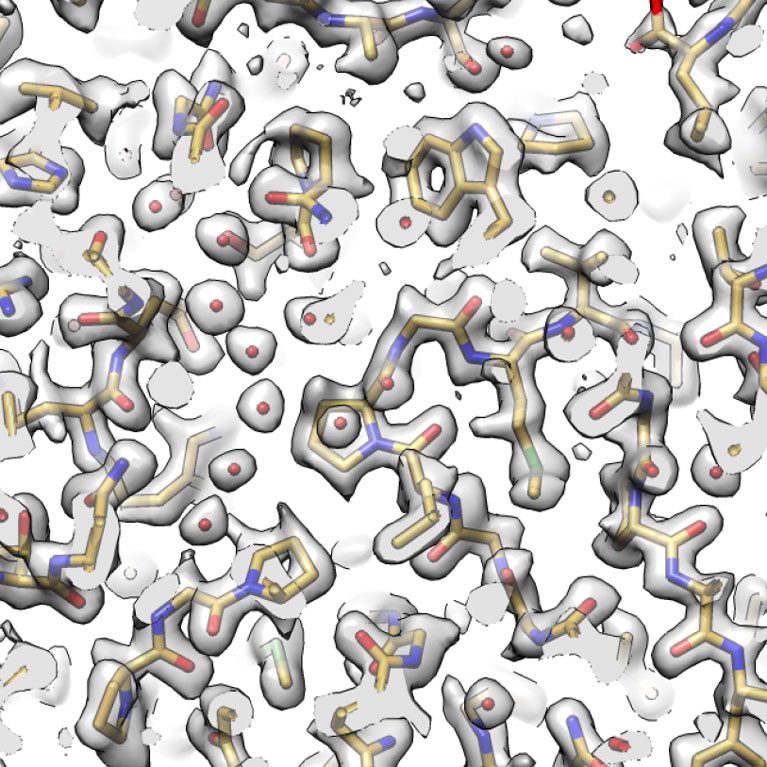
LA JOLLA—The imaging method called cryo-electron microscopy (cryo-EM) allows researchers to visualize the shapes of biological molecules with an unprecedented level of detail. Now a team led by researchers from …
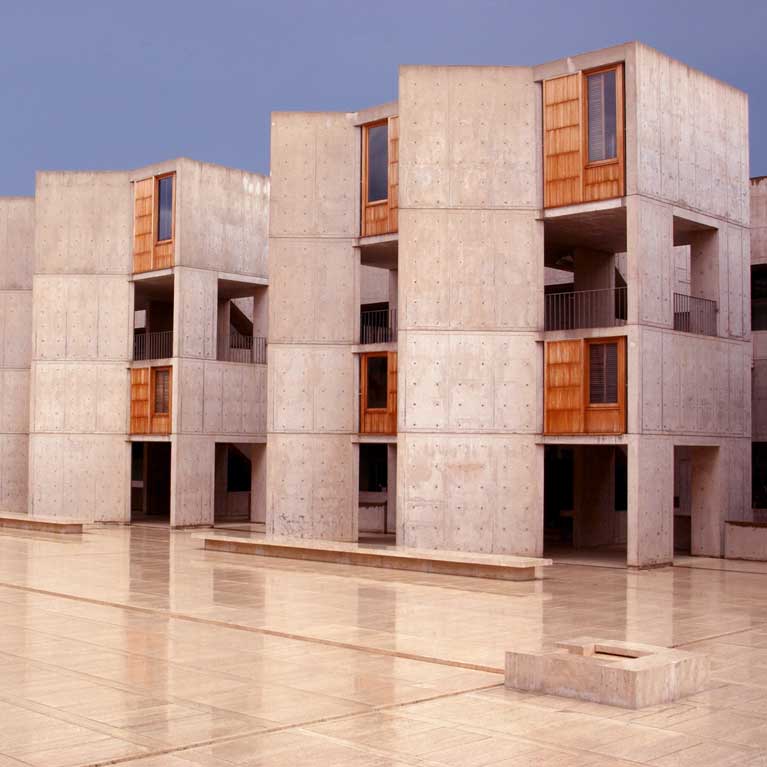
LA JOLLA—Antibiotic use is driving an epidemic of antibiotic resistance, as more susceptible bacteria are killed but more resilient strains live on and multiply with abandon. But if antibiotics aren’t …
On April 10, 2019, the Salk Institute celebrated the 10th anniversary of the NOMIS Center for Immunobiology and Microbial Pathogenesis. The anniversary symposium, titled “The Power Within – Harnessing Our Immune System for Better Health,” brought together experts in immunology, virology, and infectious diseases and showcased the contributions of scientists who have made a significant impact in the study of infections and contagious diseases. The event, with talks for both scientists and lay audiences, drew members of the community, scientific leaders, philanthropists and others. A keynote presentation by investigative journalist and author of “Pandemic: Tracking Contagions, from Cholera to Ebola and Beyond” Sonia Shah, capped the event.
As part of this celebration, the symposium featured the inaugural Melvin Cohn Lectures and Awards, in memory of one of our founding fellows.



























